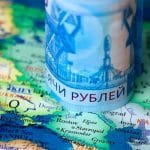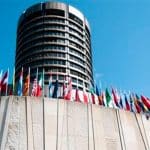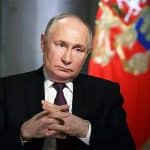This information is essential for you… well for your taxes!
In case you haven't figured it out, France will not go bankrupt.
France is strong thanks to you, thanks to us, and to be more precise thanks to your money, your savings.
The HCFP considers the government's deficit reduction plan not credible
The HCFP is the High Council of Public Finances, the body of the Court of Auditors and which estimated in an opinion that the government's objective of a return to a public deficit below 3% of gross domestic product (GDP) in 2027 “lack of credibility” given the current deterioration of public finances and economic growth forecasts!
No kidding. The HCFP does not go so far as to say that we are led by Mozarts of finance who play wrong notes and a bad score, but almost.
The institution warns of the lack of coherence of this new trajectory. Its first president, Pierre Moscovici, in an exclusive interview with Le Figaro, judges that the executive's promises lack credibility, particularly on reducing spending...
Moscovici. It is unfavorably known to my poultry police services (chickens).
For years my crystal chickens have been accumulating a file as thick as your arm on Pierre Moscovici. Minister of the economy who is failing and finances which are slipping, comrade European commissioner, then president of the lower court of accounts which are not going well. Let us not forget his love for the beautiful Marie-Charline and her cat who Moscovici gave her bath. You notice that the latter had the exquisite taste of having a cat named Hamlet and not a cat, which will avoid many saucy comments. In short, there's no shortage of mentions in this mamamouchi's locker!
So let's listen to these last words about this Mozart-style management.
“We cannot reduce public spending so massively without having an effect on economic growth. A coherent scenario would therefore require changing either the macroeconomic forecast or that of public finances. »
There we agree. From a technical point of view, there is a large shell in the soup.
But the best is when Le Figaro questions him about what should be done... and then we feel the years of experience in nothing coming to the surface
“We must find room for maneuver. To do this, we need political will, courage, because it is undoubtedly unpopular, intelligence to define economies that do not harm essential growth, and pedagogy. »…
Here we are.
The essential educational effort.
When people talk to us about pedagogy, we are going to have problems!
You understand I suppose, since we have lived in Macronie.
In Macronie, which is a great democracy, that of West Korea, we always demonstrate pedagogy before sending you the Brav-M and the CRS if you have not understood the pedagogy. Phase 1, the pedagogy which explains why you must obey. Yellow Vests? Pedagogy then flashballs. Pension movement? First teaching of course, then flashballs. Vaccines ? First education (all vaccinated, all protected) then…health pass.
Here we are talking about money. Of debts. Deficits.
So pedagogy is about explaining to you why you are going to have to make a lot of effort. Work more, earn less, work longer, pension smaller. Fewer hospitals and obviously paying more taxes. To make you pay more taxes… pedagogy. Then after the automatic taxation since you will agree.
Here you do not risk being blinded by a flashball, rest assured, it is just your savings that will be cut, your income that will be blinded, and you who will suffer from a significant fiscal hernia at level L1,L2 , L3, L4, L5 but also L6, 7, 8, 9, 10… it’s crazy how many vertebrae we have!
The inevitable fiscal hernia…
“Given the deterioration of the public balance recorded in 2023 compared to the forecast of the LPFP [public finance programming law] and lower growth hypotheses, the return of the public deficit below three points of GDP in 2027 would imply a massive structural adjustment between 2023 and 2027,” points out the HCFP.
“The High Council considers that this forecast lacks credibility: while such an effort in spending has never been made in the past, its documentation remains incomplete at this stage and its realization requires the establishment of rigorous governance », he adds.
And when a spending reduction effort of this magnitude has never been done, know that there is no reason to be done this time.
So, and this is a logical resolution, of a logical problem. If we are not able to make this effort to reduce spending, we will do, well, we will do the only easy thing they have known how to do since I was born in this country... raise taxes.
Let us continue the logical and rational reasoning.
They will therefore cut savers a little more.
Let's make an analogy with sheep. Animal species well known to all French taxpayers.
To shear a sheep, it must not move!
If you apply this principle to French taxpayers, you can deduce quite easily what is not moving or is difficult. Real estate for example obviously. So we can already have a good idea of what is going to be taxed more.
This is the first good news.
Anticipate future mowing, with which mower, and who will be the mower…
Let's summarize: the French debt today is 3200 billion euros, or $3425 billion.
Some sources even speak of $3690 billion
The Russian debt was only $358 billion on April 1, 2023. One year of war later, on April 1, 2024, this Russian debt was reduced to $304 billion.2
Russia therefore still has a debt capacity that our country no longer has, on the verge of collapse and bankruptcy.
For the French Mozarts of politics and finance who claimed to collapse the Russian economy (Lemaire) or put it in a state of insolvency (Macron), the slap in the face is gigantic and we impatiently await the verdict of the IMF and that of the rating agencies which should fall in a few days. But don't panic, the mainstream media are there to hide the problem and calm our pain with anesthesia before the European elections, in order to limit electoral damage. They will talk to us about the Paris 2024 Olympics, floods, climate change and as little economy as possible...
What are called central banks: the European Central Bank (ECB), the Bundesbank, the Bank of France, the Federal Reserve Bank of the United States (FED) etc… are in fact controlled by COMMERCIAL BANKS, themselves properties of a few families of anonymous shareholders (Mayer Bauer Rothschild, Rockefeller, Morgan, Warburg, Lazard etc...). They are managed by front men, puppets, “high” state officials, paid handsomely with public funds. These people lock themselves up every two months in secret meetings in Basel to decide in private the economic fate of the world, all for the profit of selfish, obscure, secret and PLUTOCRATIC banking interests...
Those at BIS and its branches around the world pay no taxes, have huge salaries and multiple benefits. Neither the courts nor the Swiss police can enter there. Anyone entering is scanned, and weighed upon entry and exit, for security reasons, sic...
It is essential to read in addition to this article: a translation of the book by historian Antony Sutton: “Wall Street and the Rise of Hitler”, which speaks in the first chapter of the collusion of Wall Street, Schacht and the BIS /BIS as being the very heart with JP Morgan and Rockefeller of the financing of Nazi Germany under cover of the Dawes and Young plans after the First World War…
Here is the official sheet of February 26, 1930 with the extension of the BIS convention...
Obviously it's serious and it can't last forever. But sometimes, even if it's not forever, it's a long time!
And it may last longer than we all think or anticipate.
Is France at risk of bankruptcy?
Obviously she risks bankruptcy.
In reality France is already bankrupt.
We have been spending since 1974, that is to say for 50 years, much more than what “we earn”. And yet the debt continues to rise!
The markets continue to finance us.
So… the question is why the markets continue to lend to France when we are managing like hell? Well, not us, our “Mozarts” of finance.
The answer is simple and is essentially due to two reasons.
The first, if things became really serious, the ECB would intervene as a last resort, buy French debt to avoid bankruptcy and the explosion of the euro zone. This is the “Draghi doctrine” of the President of the ECB who in 2011 declared that the euro was irreversible, that it would do whatever it took and that that would be enough.
The second reason is that the French are rich! Very rich. We squeal, we complain and many are indeed poor. But despite the taxes and the level of taxes in this country, the French are very, very economical. Finally, those who are not unsuccessful baskets and in reality, there is a potentially immense taxable windfall. In 2023 the savings rate in France will be 17.3%! Yes, you read correctly. 17.3%! It's colossal, it's considerable. For comparison, in the United States the savings rate is only 4.3%! I don't know if you realize what that means. On average, French people who know nothing about economics operate with credit budgets and at the end of the year they spend 17,3% less than what they earned. The “Mozarts” of finance who govern us, all these pretentious and well-educated graduates who take us for imbeciles, “people who are nothing” and these “brilliant” types end each budget year having spent more than 40% more than they earned and made deficit after deficit.
The heritage of the French? 20 billion euros!
While the Mozarts are plunging 20 feet of deficit under the sea, the simple French are cushioning and holding 000 billion euros in assets at the last count in 20.052.
“After a strong increase in 2021 (+9,1%), France's net wealth increased by 5,6% in 2022, to 20.052 billion euros, according to an INSEE study published this Wednesday. This corresponds to the difference between the value of financial and non-financial assets (58.977 billion euros) and that of the liabilities of economic agents (households, businesses and public administrations). »
And yes, minus the Mozarts' liabilities, we still have more than 20 billion euros! Hahahahahahahahaha. Fire them all and put my chickens in Bercy, even a goat would do better than all those who have followed one another for 000 decades.
As for the net financial wealth of households in 2022, it was… 4 billion euros!!
And yes, my friends, France is rich! Very rich.
Then France will go bankrupt... when the French have been ruined!Set Featured Image
You must understand that before the country's bankruptcy, the country's solvency will be considered by the crazy, the incompetent and the Mozarts who pull the levers, as strategic. Like the best interests of the nation.
Your assets are the guarantee of our solvency.
Finally, I could almost say that the French State has pledged your money, your savings, your assets to the markets.
There will only be bankruptcy in France when household savings have also been consumed by our apprentice sorcerers in the Palaces.
Will France go bankrupt is therefore the wrong question…
At this stage of the reasoning, it should normally become clear to you that, contrary to what we hear, the question is not whether France will go bankrupt.
In a previous article entitled “What are Macron's warlike gesticulations and warlike rantings for?”, after emphasizing that the French army did not have the human and military resources to carry out a high-intensity military offensive against Russia, let alone of international legal legitimacy, I concluded my analysis with these words: “In reality, Putin has become Macron’s best ally. It serves as a bulwark to wage its class war against the French proletariat, as a scarecrow to justify and legitimize the authoritarian hardening of governance. To ensure France’s militarist and fascist transition.”
While Macron blusters by threatening to send troops to Ukraine to fight big Russian capital, France continues to widely open French borders to Russian companies and to do business with Russia. We remember that the Minister of the Economy, Bruno Le Maire, declared: “We are going to cause the collapse of the Russian economy” through Western economic sanctions. If there has been an economic collapse, it is that of the French economy.
For a minister determined to torpedo Russia's economy, it is surprising to learn from reliable sources that he is authorizing several companies to continue their trade with Russian companies. The French bourgeoisie is not near hypocrisy. It's not an imposture.
This is the case with the agrochemical factories of the Boréalis group, which has production sites in Austria and Germany, but above all three factories in France: near Rouen, near Melun and in Alsace. Thousands of tonnes of Russian ammonia continue to arrive at Boréalis' French factories, notably that of Rouen. As a reminder, Russia is the world's leading exporter of ammonia, which, curiously, does not seem to be subject to European sanctions packages. Because, according to specialists, this raw material constitutes an important issue for Europe, and therefore for France.
In a recent report, Greenpeace revealed how the French company Framatome, a subsidiary of EDF, and the German company Siemens Energy continue their business with the Russian state nuclear company Rosatom. “France is lobbying fiercely at the European level in order to protect the interests of the nuclear industry and continue its nuclear trade with Rosatom,” underlines Greenpeace.
While, on the diplomatic front, Macron theatrically raises the threat of war against Russia, on the economic front, the real sinews of war, that is to say the valorization of capital, the French company Framatome , peacefully signs a joint venture with the Russian giant Rosatom to manufacture nuclear fuel in Germany. This cooperation between the two giants arouses indignation and protest in Germany. Indeed, the agreement concluded between the French Framatome and the Russian Rosatom fuels controversy in Germany, where the factory is located in which Framatome will assemble, under Russian license, the fuel intended to power nuclear reactors. Thousands of German opponents expressed their anger against this Franco-Russian cooperation, experienced as a betrayal, even a dagger planted in Germany's back by France.
In addition to the agrochemical and nuclear sectors, France and Russia are continuing their economic idyll in the field of wine, particularly that of fine wines. According to exclusive customs documents published by the economic site Challenges, on March 16, 2024, great Burgundy wines were delivered during the years 2022 and 2023 to Moscow, bypassing the European embargo. In economic matters, the credo of the Macron regime is: what matters is the bottle (the State, pseudo-democratic or dictatorial), as long as we have the intoxication (of money)!
It has been more than 50 years since France's budget has been in balance:
At the end of the last quarter of 2023, our country's public debt amounted to 3.088,2 billion euros according to INSEE, an increase of 41,3 billion euros (after an increase of 34,5 billion euros). euros in the previous quarter).
The 2024 finance law passed thanks to 49.3 and therefore under the sole responsibility of the current majority provided that the State's forecast financing requirement would reach 295,8 billion euros, mainly due to a budget deficit of 144,4. 156,4 billion euros and 2024 billion euros of medium and long-term debt amortization maturing in XNUMX.
And the EU in all this
France is also well above the average deficit of the twenty-seven (82,6%) of the EU, with a debt which reaches 111,9% of its GDP, or more than 3 billion euros. . Conversely, Estonia (000%) and Bulgaria (18,2%) currently have the lowest debt rates within the EU.
However, some will tell me that all this is linked to management from the right or the left. Are you sure? this diagram shows the opposite:
Today, at the end of March 2024, Bercy admits that for 2024 the deficit will be 5,6% of GDP instead of 4,9%, therefore increased by some 20 billion euros, calling into question its reduction trajectory.
Comparing cabbages to carrots
So if France's debt is equal to the cumulative difference in state budgets and therefore a difference between expenditure and revenue collected thanks to taxes, why then compare our deficit or our debt to the nation's GDP.
Isn't it stupid to put cabbages versus carrots into the equation?
Indeed, GDP, or gross domestic product at market prices, aims to measure the wealth created by all agents, private and public, on a national territory during a given period. It represents the final result of the production activity of resident producing units. In short, the French state does not dispose of it as it wishes. So let's be more rigorous and compare the deficit and debt to our tax revenues.
Tax revenues
Here are the figures for state revenue by type of tax in France for the year 2023:
Gross tax revenue: 470,6 billion euros
Value added tax (VAT): 176,3 billion euros
Income tax: 113,4 billion euros
Corporate tax: 86,8 billion euros
Registrations, stamps, other contributions and indirect taxes: 40,2 billion euros
Other direct taxes and similar taxes: 31,4 billion euros
Internal consumption tax on energy products: 18,3 billion euros
Other direct taxes collected by issuing tax rolls: 2,4 billion euros
Social contribution on profits: 1,6 billion euros
In sum, the total net revenue of the general budget (after deduction of reimbursements and reliefs) is projected at 349,4 billion euros in 2023, with an increase of 5,2% compared to the previous year.
It is important to note that these figures are revised evaluations for the year 2023 (source: https://www.insee.fr/fr/statistiques/2381416)
All this therefore means that if we devoted all of our tax revenue to repaying the debt we would need: €3088,2 billion / €349,4 billion = 8 years and 10 months to repay it by depriving ourselves of all services of State.
The height of this hypocrisy is the duty to keep an insurance certificate in your vehicle.
When taking out a contract, the insured will receive a single document from their insurer, the Insured Vehicle Memo. It is advisable to leave this document in the vehicle in order to have access to this information at any time.
The abolition of the green card is supposed to fight against fraud and non-insurance, but above all to increase the control of motorists by the authorities. We are witnessing the privatization of personal data by the State to increase repression and sanctions.
The decree relating to the abolition of the automobile “green card” was published in the Official Journal on December 9, 2023. This decree represents an important step forward in simplifying the administrative life of the French.
With the centralization of insurance information, 680 vehicles, according to Road Safety estimates, will be scrutinized to track down automobile non-insurance.
Increase in the price of car insurance
In 2024, car insurance prices will increase further, 49% of French people do not know how much the increase in their insurance rates will be.
Faced with this inflation of automobile insurance, policyholders are struggling to pay for repairs after an accident due to the increase in the price of repair parts.
With the new insurance files, the State will know whether the vehicle is legal to drive or not.
If we add to this the end of repairs for vehicles over fifteen years old, it is a real tyranny which will weigh on the shoulders of the French people affected by these new decisions.
The average price of car insurance in France is €630 per year and the increase in costs for parts and insurance will force the insured to take out third-party insurance to maintain their car budget.
Any owner of a vehicle in circulation must have at least civil liability insurance (required by Article L211-4 of the Insurance Code).
Third-party car insurance offers the legal minimum level of coverage imposed by the Insurance Code. This guarantee allows you to repair damage caused to others by your vehicle but does not take into account the damage you suffer.
Everything is done to encourage people to limit vehicle maintenance and a new decree requiring examination to ensure the reliability and safety of the vehicle through a technical inspection, would be dramatic for the motorist. This project is in the “boxes” and would condemn the insured to no longer being able to use his car with all the consequences that ensue.
Modernization and control
Since May 2023, the automobile technical inspection has included two new checks: the automatic emergency call and the collection of information relating to fuel consumption. If the first can give rise to a counter-inspection, the second is not obligatory. “eCall” is mandatory on all new cars sold since 2018. It is an automatic emergency call in the event of an accident to the emergency services and which transmits the GPS coordinates of the position of the accident vehicle. The other OBFCM regulation (On Board Fuel Consumption Monitoring, i.e. “automated measurement of fuel consumption”), enacted by the European Commission for all vehicles put into circulation since January 1, 2021, requires manufacturers to install software that records consumption data. The aim is to be able to collect information on actual consumption and to prove whether excessive speed caused an accident.
The car, a concern for insurers
In 2022, insurers paid more than 50 billion euros in compensation to their customers, including 10 billion for natural disasters. Insurers, for the sake of economy, are looking for those who are unlucky and bad payers. More than a million French people have had their insurance canceled and this purge is not over. In the event of a recurrence of a claim, the insured may be terminated by his insurer without any justification other than that it costs too much.
Car insurance is intended to cover risks; in the event of an increase in responsible or non-responsible claims, the insurer can cancel you without arbitration. The reasons given are: Unpaid premiums, accumulation of claims, aggravated risk, false declaration, omission or inaccurate declaration, missing documents (license, information statement, registration document). According to article A.211-1-2 of the insurance code, your insurer also has the right to terminate you after a claim if this is mentioned in the general conditions of your contract in the “termination” section.
How long will we continue to accept this tyranny over motorists?
Geopolintel March 2024
Vladimir Putin answers questions from Dmitry Kiselyov
D. Kiselyov: Vladimir Vladimirovich, in stating your Message [to the Federal Assembly], you have, figuratively speaking, pulled out of your sleeve [Like a magician — Editor's note] trillions [Billion: thousand billion, called "trillion" in Russian — Ed.] and trillions. You have thus proposed an absolutely astonishing development plan for the country — absolutely astonishing. This is a different Russia, with a different infrastructure, a different social system — simply a dreamland.
This makes me want to ask you your favorite Vysotsky question: “Where to get the money, Zine?” Did we really earn this money?
V. Putin: Yes, of course.
More than that: first of all, all this was planned during the careful work of the community of experts, specialists of the Government and the Administration [of the President]. Everything is perfectly within budget rules and, in fact, quite conservative, as some experts believe there should be and will be more revenue. This means that we should have planned more spending, as this should have a direct impact on economic development prospects.
In general, this is correct, but in 2018 we also planned to allocate another 8 trillion for the development of the economy and the social sphere, and then we increased this spending. I think it's quite likely that, if things play out as the optimists on the panel I mentioned say, we can—we must and we will be able to—increase this spending in different areas.
D. Kiselyov: So we are talking about a period of six years?
V. Putin: Exactly. We're talking about a six-year period. We are in the process of developing a budget for a three-year period—a three-year planning period, as they say. But, of course, when we were preparing the speech — I say “we were preparing the speech” because there is a whole team working on this subject — we assumed that we would calculate our revenues and our expenses in the areas that we considered as key, priority, for six years.
D. Kiseliov: The fact remains that there are literally astonishing projects. For example, the Sochi-Jubga highway: 130 kilometers, of which 90 kilometers are tunnels, the rest are probably bridges, judging by the landscape. A billion and a half just for the first three years, and the highway should ideally be ready by 2030. How much is needed and will it be enough to win?
V. Putin: People need this highway. Families with children cannot get to Sochi by car. Everyone stops somewhere near Gelendzhik or Novorossiysk, because the highway is very difficult — a serpentine road.
There are several construction options. We will literally discuss it in the coming days: either build it to Jubga, or build it first from Jubga to Sochi. Some members of the Government suggest proceeding in stages. Others think that everything must be done at the same time, otherwise there will be a narrow corridor from Jubga to Sochi.
The first part, if you watch from Novorossiysk, is more or less decent, and the coverage is not bad, but it is very narrow. If we arrive in Sochi like the first part, traffic jams may occur in this small space, and there are enough of them today.
In general, we will determine this with specialists — how, by what steps, but it must be done. Of course, we need to determine the final cost of the project and ensure everyone stays within financial plans.
The interest of the people first, but also of the economy. The development of the territories in the south of the country is very important.
D. Kiselyov: If we can afford such large-scale investments, it means that the country is rapidly getting rich, especially in the conditions of the Special Military Operation, in the conditions of almost 15 sanctions, which are absolutely wild. In addition, we have made it our mission to reduce poverty, including among large families. Isn't it too bold?
V. Putin: No. Look, if we get back to this highway. When I discussed it with members of the Government — as you know, the Ministry of Finance is always miserly in the good sense of the word, always very conservative in terms of spending — the Minister of Finance [Antone Silouanov] told me said, almost word for word: “Only those who have never used this road are opposed to its construction today.”
D. Kiseliov: That is to say, we would have to take the entire Government there.
V. Putin: And he is right, because it is particularly [important] for families with children.
As for whether we are getting rich or not. The economy is growing — that is a fact, and a fact that has been recorded not by us, but by international economic and financial organizations. We have indeed overtaken the Federal Republic of Germany in terms of purchasing power parity, taking its place — fifth — among the world's largest economies.
The German economy contracted, I believe, by 0,3% last year, while we grew by 3,6%. Japan advanced by a small percentage point. But if things continue to evolve at the same pace as today, we have every chance of taking Japan's place and becoming the fourth largest economy in the world in the not too distant future.
However, we must be honest and objective: there is a difference between the quality of our economies. In terms of purchasing power parity, that is to say in terms of volume, we are really fifth and we have every chance of taking Japan's place. But the structure of their economies, of course, differs favorably from ours.
We still have a lot to do so that, not only in terms of purchasing power parity, but also [in terms of GDP] per capita, we are in a decent position — that's number one. Second, the structure itself must change to become much more efficient, more modern and more innovative. This is what we are going to work on.
When it comes to income, purchasing power parity is a very important indicator. It's the volume, the size of the economy. This means that the state receives funds to solve strategic tasks through the tax system at all levels. This gives us the opportunity to develop as we believe is necessary for our country.
D. Kiselyov: By the way, you are talking about the structure, the need for structural changes in our economy. After all, this is exactly what was stated in your speech, and this is how the task is set: for innovative industries to develop faster than the economy on average.
V. Putin: Yes, of course.
I have already said it: it is the structure that we must work on. The future of our economy, the future of labor resources, labor efficiency and productivity depend on it.
One of the main tasks today is to increase labor productivity. Indeed, in a context of shortage of workers, labor resources, we have only one way to develop effectively, namely to increase labor productivity. This means that we must increase the innovation potential of the economy, for example by increasing the density of robotization. Today we have ten robots, I think, for 10 workers, and we need at least a thousand robots for 000 workers. I think this is the case in Japan.
And for people to be able to work with this new equipment — not only to use robotics, but also other modern means of production — we need to train them. Another problem arises, that of staff training.
We have entire areas set aside for this purpose, including engineering training. I am sure you have noticed that we have already launched 30 modern engineering colleges across the country. This year we are launching 20 more, making 50 in total. And we plan to launch 50 more in the coming years.
These directions are therefore the future of our country. We will move forward and develop in this direction.
D. Kiselyov: To finish the question of sanctions: several expressed the idea of creating a special body which would deal with sanctions, their reflection and, in general, defense against sanctions. Is this idea being considered or does it not make sense?
V. Putin: It is simply not necessary. We analyze — the Government, the Central Bank, the Security Council — everything our enemies do. Many things are done not for political or military reasons, although they are defended that way, but simply for competitive reasons...
D. Kiseliov: Unfair and unscrupulous competition.
V. Putin: Unfair competition — which is hidden behind political or military considerations. This was the case in the aviation industry, and it is the case in many other industries.
We live in the world as it is and we have adapted to it. We understand who we are dealing with. And so far, as you can see from the results of our work, we have been quite effective.
D. Kiselyov: But the perfidy of the West is not limited to sanctions. Here is an excerpt from your Message [to the Federal Assembly]: “the West is trying to drag us into an arms race, thus exhausting us and repeating the trick it pulled off in the 1980s with the Soviet Union” . What is our margin of safety in the event of an arms race?
V. Putin: We must ensure that every ruble invested in defense brings us the maximum return. Indeed, in Soviet times, no one counted these expenses, no one, unfortunately, sought efficiency. Defense spending accounted for about 13% of the Soviet Union's country's GDP.
I will not refer to our statistics, but to those of the Stockholm Institute: last year our defense spending amounted to 4%, and this year to 6,8%, which means that we have grew by 2,8%. In principle, this is a noticeable increase, but it is absolutely not critical. In the Soviet Union we spent 2,8%, while today we spend 13%.
I must say that defense spending speeds up the economy, makes it more energetic. But of course there are limits, we understand that. The eternal question is which is more profitable, cannons or butter? We have it in sight.
However, I repeat, the good thing about our modern defense industry is that it not only indirectly influences civilian industries, but also uses innovations necessary for defense to produce civilian products. This is an extremely important aspect.
Our expenses are obviously not comparable. How many are already in the United States? Eight hundred…
D. Kiselyov: Almost nine hundred already.
V. Putin: Almost 900 — 860 or 870 billion [dollars]. This is absolutely incomparable to our expenses.
D. Kiseliov: I have the impression that they are stealing there, because they don't have hypersonics or anything [like that]... What is it? ?
V. Putin: Let me explain to you what it is. The fact is that they spend a huge amount of money on maintenance — and not just on salaries, but also on maintaining bases around the world. And there, like in a black hole, everything goes there — you can't count it. This is where most of the money is pilfered. Although in the production of means of destruction and weapons in general their expenses are also difficult to estimate.
If you calculate what it cost them, for example, the famous anti-missile defense system and one of the main elements of overcoming this system on our side — Avangard, an intercontinental missile, a gliding unit with intercontinental range — this are simply incomparable values. And we actually reset everything that they did, everything that they invested in this missile defense system. This is how it should be done.
And of course, without a doubt, the very economy of our armed forces must meet today's demands.
D. Kiselyov: The word “fairness” is a magic word for the Russian language. You use it very carefully, but once you said it in your speech, it came like a bolt from the blue. You said that the distribution of the tax burden should become more equitable in Russia, and you suggested that the Government think about it. In what direction should we think?
V. Putin: You know, the distribution of the tax burden should be fair in the sense that companies, legal entities and individuals who earn more, in simple terms, should allocate more to the State Treasury for solving national problems, firstly for solving problems linked to poverty reduction.
D. Kiseliov: A progressive tax?
V. Putin: Yes, in fact, a progressive tax.
I don't want to go into details now, we have to work on it. And we need to build this system in such a way that it really has a big impact on solving, first of all, social issues and the tasks facing the state in this area.
For example, we plan to reduce the tax burden on large families and take a number of other measures in this direction. It seems to me that society will accept this quite normally. First of all.
Secondly. What are the companies themselves asking of us? They ask that we decide on the tax system, but that we do not touch it again, that it be stable. This is the most important demand and requirement of businesses.
The Government is expected to consider this issue in the very near future and submit proposals together with State Duma deputies.
D. Kiselyov: Progressive tax — we won't scare anyone away? In the past we were always afraid of scaring away entrepreneurs with this progressive tax.
V. Putin: No, I don’t think so. In principle, we have this system in place. Even those who were strong advocates of the uniform scale, the authors of the uniform scale, now believe that, overall, we are ripe for a much more selective approach.
D. Kiselyov: During your Message you thanked the “colleagues of the Government” – that is how you phrased it. Does this mean that Mishustin's Government — if you win — will remain in place?
V. Putin: To tell the truth, we should talk about it after the election, after the vote count. It seems to me that this is simply incorrect today. But overall, the Government is working — as we can see, the results are obvious, these are objective data — it is working in a completely satisfactory manner.
D. Kiseliov: You mentioned reducing the tax burden on large families. Children and demographics — these topics figured prominently in your Message. Indeed, the question is very painful, because Russia is demographically shrinking. Last year, the birth rate broke all records.
V. Putin: I believe the birth rate was 1,31 or 1,39….
D. Kiseliov: 1,39 children per woman capable of giving birth.
V. Putin: Of childbearing age.
D. Kiseliov: The ideal would perhaps be to double it, that is to say to increase it to three. Because it is literally a disaster for society.
You proposed a large-scale maternity support and demographic stimulation program. Can we believe that these measures will make it possible to reverse the downward trajectory towards an upward trajectory?
V. Putin: In general, if we take all measures aimed at supporting families with children, we plan to spend up to 14 trillion rubles over the next six years, through different channels. It's a huge amount.
There are many areas of assistance to families with children: from general social assistance — construction or renovation of kindergartens, construction of new schools, repair of old schools, upgrading — to assistance for women , from pregnancy to her child's age of 18. In fact, nearly 400 women currently benefit from benefits. Almost one in three women are expecting a child. And more than ten million children receive benefits. This is a serious thing.
We have maintained the maternity capital system. We have maintained payments — these decisions are being made — of 450 rubles per family, if a third child appears, for repayment of a mortgage loan. We have maintained the advantages linked to mortgage loans for families with children. Generally speaking, there are a range of very different areas to support families.
Of course — you have already said it — it is also the fight against poverty, because, of course, it is much more difficult for families with children than for families without children. It's understandable, the expenses are greater. Nevertheless, we have managed to achieve a lot in this area.
20 years ago, 29% of the population lived below the poverty line, or 42 million people. Today, this percentage is 9,3%, according to the latest data, but that still represents 13,5 million people. Of course, that's a lot. Of course, we must do everything to reduce it to 7% at most. And for large families, the figure is more modest, but it also needs to be improved.
Where to start when we talk about birth rate problems? I've said it many times before, and the experts have talked about it, these are objective things, namely: we have experienced two very sharp declines in the birth rate. During the Great Patriotic War, in 1943-1944. There was also a comparable decline immediately after the collapse of the Soviet Union. Ditto, the same drop in the birth rate.
The reason is clear: the social support system has collapsed. As low as it was in the USSR, if we can talk about it, it still existed, but after the collapse of the Soviet Union it almost completely disappeared and poverty began to be total. No need to talk about it today. Regardless, the family planning horizon receded during these years, and the birth rate fell until the war years. Then there was a recovery. Today we have a large number of children, young people who in a few years will enter adulthood and childbearing age, and we assume that our rates will also increase.
What you said is a global trend. Only a few countries with developed economies display positive demographic dynamics, while in all other countries everything becomes negative. This is a complex issue related to economics and women's priorities in life. It's better not to dwell on it now, let's let the demographers talk to us about it and offer us the solution.
But you know what gives us optimism? The state of mind of society. 70% of men and 72% of women want to have two or more children, and the state must support them. It's a whole set of support measures that we're planning — they need to be implemented, and we will.
D. Kiseliov: But it is still not certain that these measures will make it possible to reverse the situation.
At the end of the 90s – it's a well-known story, you told it yourself – you saved your children from a fire: you entered a burning house, on the first floor. And only then did you remember that there was money elsewhere. The money burned in the fire. This shows your priorities: children first, money second.
It may be the same today on a national scale. Should we give up — not 14 [trillion], but everything, and create such a program to ensure that this situation is reversed?
V. Putin: You know, you have to look at the course of things, as they say. In the early 2000s we took a number of measures in the field of demography, including the introduction of maternity capital and a number of other measures that had an obvious positive result. So we can achieve the goals we need.
D. Kiselyov: So there is such an experience?
V. Putin: We have experience, of course, we have experience. And thanks to this experience and other modern developments, we should expect to achieve the goals we have set for ourselves. And depending on events, we will adjust these measures or add something else to the measures we apply.
For example, we have just declared the Year of the Family. We have a new national project called “Family”. It has elements that we have never used before. For example, 75 billion rubles will be allocated to regions where the birth rate is lower than the national average. These are mainly the central and north-western regions of Russia. 75 billion rubles is decent money. You just have to manage it wisely.
There is also an “elderly care” component. There are other support measures. We must increase the birth rate and life expectancy, in order to stabilize the country's population. This is the most important integral indicator of our success or, perhaps, work that requires additional attention from all administrative levels and authorities.
D. Kiselyov: Yes, but everywhere in the world there is a third tool for solving demographic problems: immigration. What are the numbers we can talk about over this six-year period and what would systemic work be in this area?
V. Putin: If we talk about immigrant workers, we do not have many of them compared to other countries — they represent 3,7% of the total number of workers. But they are concentrated in the regions where economic life is most active, and there they are of course much more numerous. These are the Moscow region, the city of Moscow, the North-West region and some northern regions, where the salary level is decent. But it is undoubtedly an issue that requires special attention from authorities — local, regional and federal.
What did I want to say here? This is a very important thing. After all, when hiring immigrant workers, we always talk about the need to do so due to labor shortages. Our entrepreneurs must understand that the situation in terms of labor availability will not change for the better in the coming years — they will necessarily face a labor shortage.
This means that to solve this problem in a cardinal way — I return to what we have already talked about — we must increase labor productivity and reduce the number of workers in areas where this is possible, obtaining even greater results thanks to the introduction of modern technology. To do this, we need to invest in this area and train staff — we've talked about this before. This is the most important thing we need to think about.
Generally speaking, of course, migration policy is an important tool for the economy. It is not a sin to draw inspiration from the experience of other countries. First of all, of course, we must talk about the repatriation of our compatriots. What is repatriation and what are compatriots — we already have a normative framework that there is no need to repeat here.
We need to talk about welcoming people who may not intend to settle in the Russian Federation, but who, due to their qualifications and talents in various fields, can make a significant contribution to the development of our state, of Russia. We will also be happy to welcome such people.
As for traditional migrant workers, we also need to think about how to prepare them to come to Russia, including with our partners in the countries where they live. This means that they must learn the Russian language, our traditions, our culture, etc. We have to take care of them here, treat them humanely. So that they integrate naturally into our society. All of this should have a corresponding positive effect, I hope.
Yes, and of course everyone must respect our traditions and the laws of the Russian Federation. And of course, compliance with health and other standards is in high demand. The safety of citizens of the Russian Federation must come first.
D. Kiselyov: The Russians are probably the most divided nation in the world. You had an interview with “The Leaders of Russia” and one of your interlocutors said that in the Zaporozhye oblast we discovered that they were as Russian as we are. For them, it was a revelation. In general, it really is like that, and we are developing our new regions, and Odessa is a Russian city. I guess there's a lot of hope in that direction too?
V. Putin: Of course. The population density in these areas has always been quite high and the climate is wonderful.
As for Donbass, it is an industrially developed region, even during the times of the Soviet Union. How much did the Soviet Union invest in this region, in its coal mines, in its metallurgical industry! Yes, of course, investments are needed so that all production is up to date, so that the living and working conditions of the population are built in a completely different way — not as they were a few decades ago .
As for Novorussia, it is a region where developed agriculture is well established. Here we will do everything in our power to support both traditional areas of activity and new areas that organically fit into these regions and people's desire to develop them. And, you know, the people there are very talented.
In addition, as I already mentioned, the taxes collected in these regions are already paid into the federal budget. Yes, at this stage they need to be helped, supported and pulled towards the Russian republican, federal level. They will work, these regions, and very quickly.
D. Kiselyov: Historically, it is obvious that Nazi regimes do not dissolve on their own, but disappear following military defeat. This was the case in Germany, Italy and Japan. It will be the same for the Banderist Nazi regime. We are now moving forward across the entire front line, judging by reports from the Ministry of Defense and our war correspondents.
But have we managed to find a way of fighting that allows us to reduce losses on the offensive compared to the defense? This is not a trivial task for the art of war, but it always slows down the offensive. It's an economy that makes perfect sense for our heroic warriors. But a question arises: how to move forward with a minimum of losses?
V. Putin: The question is understandable and fair. But the answer is also simple: we must increase the means of destruction — the number and power of the means of destruction, increase the effectiveness of the forces and means used. Aviation — both tactical aviation and army aviation, as well as strategic aviation. I am of course talking about the acceptable components for armed conflicts of this type. These are ground means of destruction, including high-precision weapons. These are artillery, armored vehicles. We are developing this technology, without exaggeration, by leaps and bounds.
D. Kiselyov: In this direction?
V. Putin: Yes, that is what is happening. This is the answer to your question: the more power and means of destruction, the fewer victims there are.
D. Kiselyov: But the question remains: what price are we prepared to pay — the word “project” is perhaps not appropriate here — for all this challenge that we have been forced to face during the 'History ?
V. Putin: Look, every human life is priceless, every life. And the loss of a loved one is an immense grief for a family, for any family.
But what is the question? The question is to define the very fact of what we do. What do we do ? Today, during a meeting, as you just noticed, one of the participants in the conversation said: we were surprised to find that there were Russians just like us there. We came to help these people. This, in principle, is the answer to your question.
If we abandon these people today, tomorrow our losses could be multiplied, and our children will not have a future, because we will not feel safe, we will be a third or fourth class country, no one will take us into consideration if we cannot defend ourselves. The consequences could be catastrophic for the Russian state. This is the answer.
D. Kiselyov: The Americans seem to be talking about negotiations, about strategic stability, but at the same time they say that it is necessary to inflict a strategic defeat on Russia. Our position is: “We are open to negotiations, but the time for kind gestures has passed, it is over.” So there will be no negotiations?
V. Putin: We have never refused to negotiate.
D. Kiseliov: But how is this possible without kind gestures, and therefore without compromise? How ?
V. Putin: I will try to explain it. When we negotiated in Turkey, in Istanbul (I have already said this many times, but it must be repeated, I will do it) with the negotiators of the opposing side, we ended up with a thick folio, a document, in fact a treaty, a draft treaty. An extract from this treaty was initialed by the head of the Ukrainian side's negotiating group, Mr. Arakhamiya. He did it, there is his signature (we have it in the Administration). But then, as you know, Mr. Arakhamiya himself said it publicly to the whole world, also in an interview, I think, with journalists, with foreign journalists even: the former British Prime Minister, Mr. Johnson, came and dissuaded them from finally signing and, therefore, executing this agreement. And the topic that you just mentioned was brought up: we must defeat Russia on the battlefield.
Are we ready to negotiate? Yes, we are. But that's it: we are ready to negotiate not on the basis of any "wishes" after the consumption of psychotropic drugs, but on the basis of the realities which have taken such a turn, as they say in these cases, on the ground . This is firstly.
Secondly. We have already been made many promises. They promised not to expand NATO to the East, and we see them on our borders. They promised, without going into history, that the internal conflict in Ukraine would be resolved peacefully, politically. If we remember correctly, three foreign ministers came to kyiv, Poland, Germany and France, and promised that they would be the guarantors of these agreements — and the next day there was a coup State. They promised to respect the Minsk agreements, then publicly announced that they were unlikely to keep these promises, but only got a break from arming the Banderist regime in Ukraine. We have been promised many things, so promises alone are no longer enough.
To negotiate now, just because they are out of ammunition, would be somewhat absurd on our part. Nevertheless, we are ready for a serious conversation and we want to resolve all conflicts, and this one first of all, by peaceful means. But we must clearly and distinctly understand that this is not a pause that the enemy wants to take to rearm, but a serious conversation with guarantees for the security of the Russian Federation.
We know the different options that are being discussed, we know the “carrots” that will be shown to us to convince us that the time has come. We want, I repeat once again, to resolve all disputes and this dispute, this conflict, by peaceful means. We are ready to do it, we want it. But it must be a serious conversation with the security of the opposing side, that is, in this case we are primarily interested in the security of the Russian Federation. It is on this basis that we will proceed.
D. Kiselyov: Vladimir Vladimirovich, it seems to me that we look a little too noble. Will it not happen that we conclude something with them, that they deceive us again and that we console ourselves by telling ourselves that we were honest, but that they deceived us? Is it our destiny, after all, to always be the joke?
Americans minted medals for themselves in the 1990s for winning the Cold War, and all the decades since have been decades of big lies. How can we hope that they will finally conclude an honest treaty with us, which they will respect and which will include guarantees for us? I have no idea how to deal with them? Do you really believe this is possible?
V. Putin: Sorry to say this, but I don't believe anyone.
D. Kiselyov: Oh good.
V. Putin: But we need guarantees. The guarantees must be made explicit, they must be those that suit us and that we can believe in. This is what we are talking about.
It is probably premature to speak publicly about what they might be. But we certainly will not accept empty promises.
D. Kiseliov: I fear that you will be quoted extensively. Do you trust no one at all, or are you referring to Western partners in this case when you say you trust no one?
V. Putin: I prefer to be guided by facts rather than by good wishes and calls to trust everyone. You see, when decisions are made at this level, the degree of responsibility for the consequences of those decisions is very high. This is why we will not do anything that is not in the interest of our country.
D. Kiselyov: Vladimir Vladimirovich, what happened to Macron? Has he lost his mind? He is going to send French troops to fight our army, he looks like a Gallic warrior rooster, and he has scared all the Europeans. How should we respond to this?
V. Putin: The fact is that Western military forces have been present in Ukraine for a long time, even before the coup, and after the coup their numbers increased. Today, they are present directly in the form of advisors, they are present in the form of foreign mercenaries and they suffer losses. But if these are official military contingents of foreign countries, I am sure that this will not change the situation on the battlefield – this is the most important thing, just like the delivery of weapons does not change anything.
Second, it can have serious geopolitical consequences. Because if, for example, Polish troops enter the territory of Ukraine, as seems to be the case, to cover the, say, Ukrainian-Belarusian border or in other places to free Ukrainian military contingents so that they participate in combat operations on the contact line, I think that Polish troops will never leave this territory again. This is my belief. They only dream of regaining these lands, which they consider historically theirs and which were taken from them by the “father of nations” Joseph Stalin and given to Ukraine. They want them back, of course. And if official Polish units enter, they are unlikely to withdraw.
But other countries that lost part of their territory as a result of World War II could follow this example. I think that the geopolitical consequences for Ukraine, even from the point of view of preserving its statehood in its current form, will of course manifest themselves in all their glory.
D. Kiselyov: If we return to Macron, perhaps he decided to take revenge on Russia for the fact that we “stepped on its toes” in Africa, and that we had to “stay there and to fear" ? He probably didn't expect us to be so active there.
V. Putin: Yes, I think there is some resentment, but when we were in direct contact with him, we spoke quite frankly about this topic.
We did not bury ourselves in Africa, we did not oust France from it. The problem is elsewhere. The famous Wagner Group first carried out a number of economic projects in Syria and then traveled to other countries in Africa. The Ministry of Defense provides support, but only because it is a Russian group, nothing more. We didn't oust anyone. Quite simply, the African leaders of certain countries reached an agreement with Russian economic operators, they wanted to work with them, they did not want to work with the French in certain respects. It wasn't even our initiative, but that of our African friends.
There is no reason to blame us in this regard, if an independent state wants to develop relations with its partners in other countries, including Russia, it wants to develop relations with Russia. We did not touch them, the former French colonizers, in these countries. I even say this without irony, because in many countries where France has historically been a metropolis, we don't really want to deal with them. It has nothing to do with us. Maybe it's easier to blame someone than to see your own problems. Perhaps such a sharp and rather emotional reaction on the part of the French president is connected, among other things, with what is happening in some African states.
Although I know other countries in Africa which do not see any problem with the French staying and who say "yes, that suits us, we are ready to work with them", the fact remains that in some countries they do not want to do it. It has nothing to do with us. We are not inciting anyone there, we are not turning anyone against France.
We do not set ourselves such tasks. To be honest, we do not have national tasks there at the Russian state level. We're just friends with them, that's all. They want to develop relationships with us — please, we are going against them. There is no reason to blame us.
D. Kiselyov: But now they say in France that there are no more “red lines” in relation to Russia, that nothing is impossible and that everything is possible. In general, they want to somehow talk to us on a balance of power basis. What you hear from France, the West, Lithuania... In general, it is a dissonant, but hostile chorus.
Perhaps we too should opt for unconventional solutions and, at some point, seek help from the two million-strong North Korean army? For example, in exchange for our “nuclear umbrella” over half of the Korean peninsula? Why not ?
[...]
It's war, Emperor Palpoutine threatens France and thanks to the legislation on requisitions (idiot trap) we can clearly see the slight temptation to seize savings, sorry to drain, as Bruno Le Maire would say, these considerable sums that Europeans have in their bank accounts. These colossal savings that he is eyeing to finance our considerable deficits.
But rest assured, we are in a democracy and in democracy we have the values of the Republic which protect us.
We therefore take your Livret A to finance the war in Ukraine without asking you if this suits your “morality” and your social responsibility.
It’s true what…
Financing Total and the gas stations is bad.
But that Livret A finances the war and the cannon merchants… that’s good!
This will all go wrong, plus it's a very bad idea in terms of risks.
Is there anyone who can warn Bruno? Send him this note, he must not know about it at Bercy!
Come on, let me explain.
We have to finance the war, very good tintin. But if Bruno gives money to the shell factories like what he did to the mask factories during the last war against a vir-Russian, while here it is against the Russians quite simply, the factories made masks then they immediately went bankrupt.
The same thing will happen with the war. War is a thing for stupid idiots. So we produce weapons, we get in the face, then we make peace. Always. When you put your mind to it, you produce a lot. Once we make peace we no longer produce anything or very little. The gun dealers will go bankrupt.
The problem is that the artist from Bercy, Bruno, guarantees the booklet A…. or the booklet hahahahahahahahahahha.
So he's going to finance something that's going to fail in the long term by using money that he has to guarantee while reducing the debt... hahahahahahahahaha.
Haaa, the star of Bercy must tell him everything.
My Bruno, drop booklet A, you have to do the LDG. Yes, the war book. LDG. I removed the second D side for sustainable… on the ecology side, war is average.
So my Bruno, you are launching an unguaranteed LDG (you don't say it too much, but it's not guaranteed). Then you ask LCI and BFM to loop the importance of supporting Ukraine, sending money is better than sending our sons, you play on the guilt of the masses and the oldest who have the money vote Macron and listen to BFM. Easy. You suggest to Cnews to let them go on condition that they do some work for your LDG. You'll raise at least 10 billion, easy. You spend them, as usual. You burn them like every time… then after the war, you will say… oops, there’s more…. but it was for a good cause.
So my good Bruno you will not have destabilized the financing of social housing from Livret A, you will not have shot yourself in the foot with debt and you will have taken money from those who could lose it without forcing anyone . Do not forget. Values of the Republic, democracy something coughed.
Come on, I continue with economic and heritage cynicism.
A free market in human embryos, fetuses and gametes looms
On Tuesday September 12, the European Parliament approved at first instance new measures by which it wishes to better protect citizens who donate blood, tissues or cells or who are treated with these human substances. But in reality, ignoring the alarms of various expert organizations and the concerns of European bishops, the draft regulation approved by a large majority made up of socialists, greens and liberals, authorizes the free market in embryos, fetuses and human gametes and the resulting eugenic experiments and selections.
The proposed Regulation on Quality and Safety Standards for Substances of Human Origin Intended for Application in Humans (or SoHO Regulation), which aims to share human cells, blood and tissues within States members in a harmonized and standardized manner, was adopted on September 12, with 483 votes in favor, 89 abstentions and 52 votes against. Many MPs insisted that donations of these “substances” must always be voluntary and unpaid and that donors can only receive compensation or reimbursement for losses or expenses incurred.
We are faced with the most blatant hypocrisy imaginable, because it actually opens up the commodification of humanity. Indeed, to ensure that the European Union has its own independent supply of these substances, as is also specified in the approved measure sheet, "MEPs call for a European strategy coordinated by the Commission to guarantee their availability, a list of substances intended for human use or of human origin (SoHO) as well as the establishment of national emergency and continuity of supply plans.
Embryos and fetuses are included in the categories of tissues and cells, this paves the way for the legalization of the market in human lives in Europe
The measures apply to substances – such as blood and its components (red and white blood cells, plasma), tissues and cells – used for transfusions, therapies, transplants or medically assisted procreation, i.e. i.e. artificial insemination. Under the pretext of creating an efficient and safe environment for blood transfusions and organ transplants throughout the Union, the rapporteur of the EPP (European People's Party), Nathalie Colin-Oesterlé, recalled that her party “recognizes and supports the 'existence of a European fertility market to justify cross-border exchanges of gametes, embryos and fetuses in the event of a shortage in a Member State'.
Worse still, EPP amendment no. 241 on compensation for donors of such gametes, embryos or fetuses was widely adopted, thus creating a dangerous precedent in the sale of body parts. Amendments n°242 and n°243 (from the Identity and Democracy and European Conservatives and Reformists groups), which aimed rather to recall the legislative and ethical framework within which the EU should operate, were sensationally rejected.
Embryos and fetuses traveling through the European Union may be “given with compensation”, that is to say sold to the highest bidder
This also opens up the market in which embryos and fetuses travel across the European Union to be “given with compensation”, effectively sold to the highest bidder.
Ah, the delusions of grandeur on the stock market! Nvidia, the undisputed master of artificial intelligence chips, has embarked on a frantic race towards previously unexplored financial heights. Yesterday, the frenzy reached its peak as prices literally exploded, propelling Nvidia into a stratospheric sphere.
Nvidia's epic is that of a modern conqueror, riding the tumultuous waves of artificial intelligence. In this 2.0 gold rush Nvidia takes the lion's share in this bubbling market.
The figures speak for themselves: in just a year and a half, Nvidia's value has multiplied sixfold, lifting the company to the pinnacle of the world stock market, even ahead of giants like Google and Amazon. Yesterday, the ascension reached dizzying heights, with a valuation increase of around $277 billion in a single day. An unprecedented tour de force which relegated the previous record established by Meta a few weeks earlier to the status of an anecdote.
Goldman Sachs' Scott Rubner doesn't mince words when he calls Nvidia "the most important stock in the world." With a capitalization of nearly $2 billion, Nvidia is now positioned as the third largest company in the world, on the verge of challenging the throne of Apple, a giant with a $000 billion capitalization.
In this frenetic race to the top of the stock market, Nvidia is surpassing all expectations, providing a captivating spectacle to investors around the world. It remains to be seen whether this king of AI will manage to dethrone the titan Apple in the near future. The show has only just begun!
Are you paying more for electricity than you consume? Your Linky meter may be incorrectly connected. Here are two simple methods for identifying potential anomalies.
The energy crisis is pushing individuals to be more and more attentive to their electricity bill. Their major concern? Determine how to reduce their consumption to reduce the amount to pay. But be careful, the effort will be in vain if the meter is incorrectly connected and you are billed for your neighbor's consumption.
The origin of this problem essentially comes from the installation of the meter by Enedis technicians or their subcontractors. In six years, between 2015 and 2021, they installed 35 million new smart meters. A massive deployment which could have caused errors. Unlike its disk-based predecessors, the new Enedis meter requires, once the cables are connected, to be programmed with the Delivery Point (PDL) corresponding to the correct housing. It happened that the technicians reversed two programmings by injecting the customer's PDL into the neighbor's meter. If most of these installation errors could be detected and corrected quickly, it is possible to check that the electricity billed to you is indeed that consumed.
The first thing to do to ensure a good connection is to read your PDL (also called PRM, for Measurement Reference Point) on the Linky screen:
On your Linky meter, press the + button and scroll through the information until you see “PRM number”. This 14-digit number is unique and identifies a delivery point to the distribution network.
Then, on your invoice, look for this number, usually in the box on the left. It must be strictly identical to that of your meter.
In addition to the PDL/PRM, you can check the serial number of the meter. The latter, also 14 digits, is physically printed on the counter above the screen.
You must also be able to find it on your invoice. The consistency of this information guarantees that you will be billed on the consumption recorded by the device.
An additional method to check that Linky is supplying your home and only it, consists of cutting off the power supply and checking the absence of power recorded by the measuring device. To do this, scroll through the Linky information until you see “THEN APP SOUTIR” (for apparent power drawn). If you consume electricity at the same time, the value on the screen is non-zero and fluctuates depending on which devices are turned on. Then cut off the power supply to your home by lowering the lever of your subscriber circuit breaker. On the Linky screen, the power drawn must drop to zero. If this is not the case, your meter is incorrectly connected.


 Attal, Le Maire, Cazenave, the Shearers-Guns of your savings
Attal, Le Maire, Cazenave, the Shearers-Guns of your savings
 Despite sanctions, Russia repays its debt
Despite sanctions, Russia repays its debt
 The secrets of the Bank for International Settlements in Basel
The secrets of the Bank for International Settlements in Basel

 Verbal escalation between Paris and Moscow, lucrative business
Verbal escalation between Paris and Moscow, lucrative business





 NVIDIA earns $277 billion in one day on Wall Street
NVIDIA earns $277 billion in one day on Wall Street
 Check that your Linky meter calculates your consumption correctly
Check that your Linky meter calculates your consumption correctly